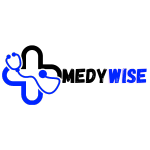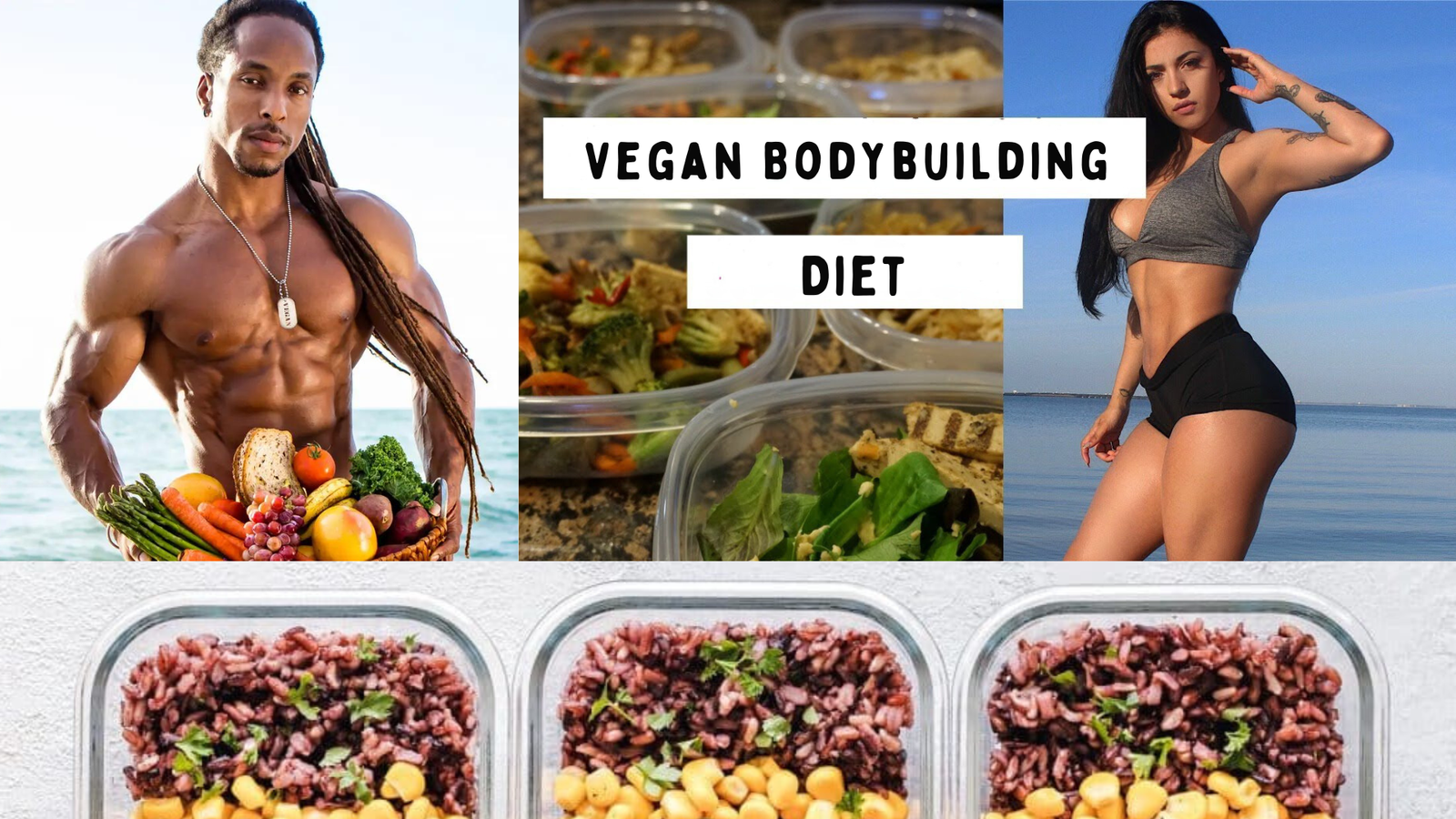Introduction
Bodybuilding, once synonymous with a diet heavy in animal products, has seen a remarkable shift. The rise of veganism has proven that building substantial muscle on a plant-based diet is possible and has shown that it’s beneficial. The key to a successful vegan bodybuilding diet lies in meticulous planning and understanding the unique nutritional requirements of your body. This comprehensive guide will delve deep into seven powerful tips for achieving muscle gain on a vegan bodybuilding diet. This guide is a testament to the success of vegan bodybuilding, inspiring you to achieve your fitness goals while adhering to a compassionate and health-conscious lifestyle.
Introduction to Vegan Bodybuilding
A vegan bodybuilding diet is not just about building muscles; it’s about creating a healthier you. It requires a strategic approach to ensure all nutritional needs are met. Protein, often considered the cornerstone of muscle building, is abundantly available from plant-based sources. But that’s not all. A vegan bodybuilding diet offers numerous health benefits, including improved heart health, reduced inflammation, and a lower risk of chronic diseases. As more athletes and bodybuilders adopt veganism, the myth that meat is essential for muscle growth is rapidly being debunked, reassuring you about the health benefits of this diet.
Tip 1: Prioritize Protein-Rich Foods
Protein is the building block of muscles. Therefore, a vegan bodybuilding diet must prioritize protein-rich foods to support muscle repair and growth. Contrary to popular belief, numerous plant-based protein sources can fuel your workouts and muscle-building efforts.
Key Protein Sources:
- Legumes: Beans, lentils, chickpeas, and peas are excellent protein sources.
- Soy Products: Tofu, tempeh, and edamame provide complete proteins.
- Seitan: Also known as wheat gluten, seitan is a high-protein meat substitute.
- Nuts and Seeds: Almonds, peanuts, chia seeds, flaxseeds, and hemp seeds are dense in protein.
- Whole Grains: Quinoa, brown rice, and farro provide protein and essential amino acids.
Protein Intake:
Aim for 1.6 to 2.2 grams of protein per kilogram of body weight daily to optimize muscle growth. This ensures your body has the necessary building blocks for muscle synthesis and recovery.
Integrating Protein-Rich Foods:
Incorporate these protein sources into your daily meals. For example, start your day with a protein-packed smoothie made from pea protein powder, almond milk, and a handful of spinach. A quinoa and chickpea salad can provide protein and complex carbohydrates for lunch. At dinner, enjoy a tofu stir-fry with a variety of colorful vegetables.
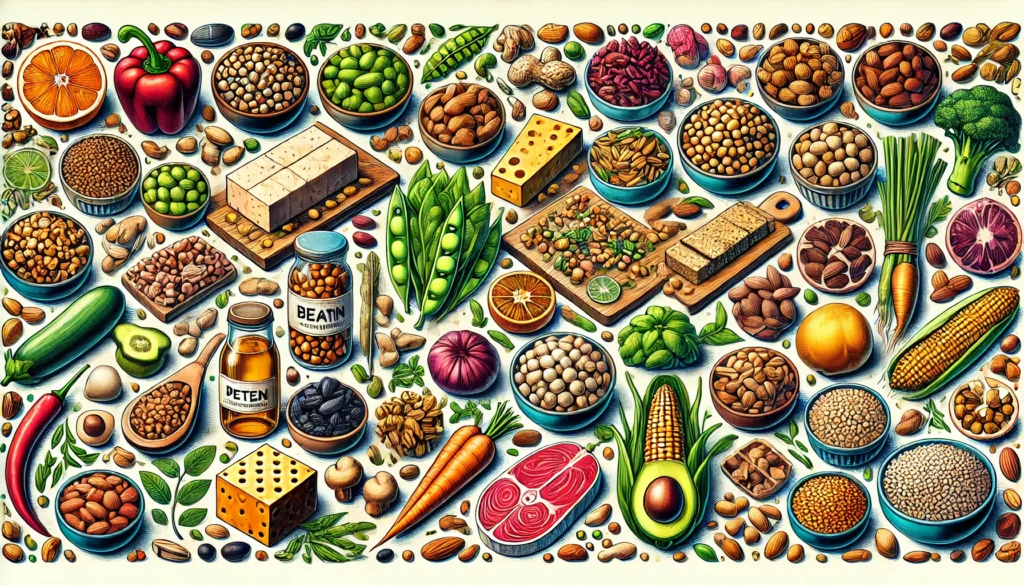
Tip 2: Optimize Caloric Intake
It takes more calories to gain muscle than to burn. A common challenge in a vegan bodybuilding diet is underestimating caloric needs due to the high fiber content of plant-based foods, making you feel full quickly.
Calculating Caloric Needs:
- Determine Basal Metabolic Rate (BMR): Use an online calculator or formulas such as the Harris-Benedict equation to estimate your BMR.
- Adjust for Activity Level: Multiply your BMR by an activity factor based on your daily physical activity (sedentary, moderately active, very active).
- Add a Caloric Surplus: Add 250-500 calories daily to support muscle growth without gaining excessive fat.
Calorie-Dense Foods:
Incorporate calorie-dense plant foods such as avocados, nuts, seeds, and healthy oils to meet your caloric goals without overwhelming food.
Practical Meal Planning:
When planning meals, focus on combining protein and calorie-dense foods. For instance, a bowl of oatmeal topped with almond butter, chia seeds, and sliced bananas provides a balanced meal rich in protein, healthy fats, and carbohydrates. Similarly, a hearty stew made with lentils, sweet potatoes, and coconut milk can be satisfying and nutrient-dense.
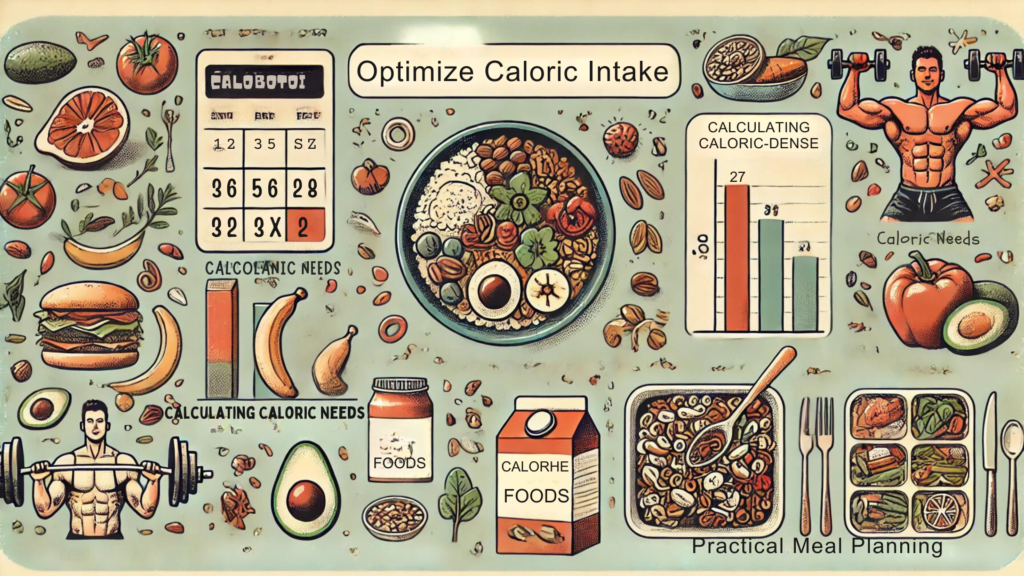
Tip 3: Balance Macronutrients
While protein is crucial, a balanced vegan bodybuilding diet must include adequate carbohydrates and fats. Carbohydrates provide the necessary energy for workouts, and fats are essential for hormone production and overall health.
Carbohydrates:
- Whole Grains: Oats, quinoa, brown rice, and whole wheat products are excellent sources of complex carbohydrates.
- Fruits and Vegetables: Bananas, berries, sweet potatoes, and leafy greens offer carbohydrates and essential vitamins.
- Legumes: Beans, lentils, and chickpeas are rich in protein and carbohydrates.
Fats:
- Nuts and Seeds: Rich in good fats are almonds, walnuts, flaxseeds, and chia seeds.
- Avocado: A versatile and nutrient-rich fat source.
- Olive Oil and Coconut Oil: Healthy cooking oils that can be used in various recipes.
Macronutrient Ratios:
A typical macronutrient ratio for muscle gain might be 40% carbohydrates, 30% protein, and 30% fat, but this can vary based on individual needs and goals. Listening to your body and adjusting these ratios as necessary is essential.
Structuring Balanced Meals:
Effectively combine macronutrients to create balanced meals. For example, a balanced lunch might include a quinoa and black bean salad (carbohydrates and protein) with a side of avocado slices (healthy fats). A lentil curry served with brown rice and roasted vegetables ensures a comprehensive nutrient intake for dinner.
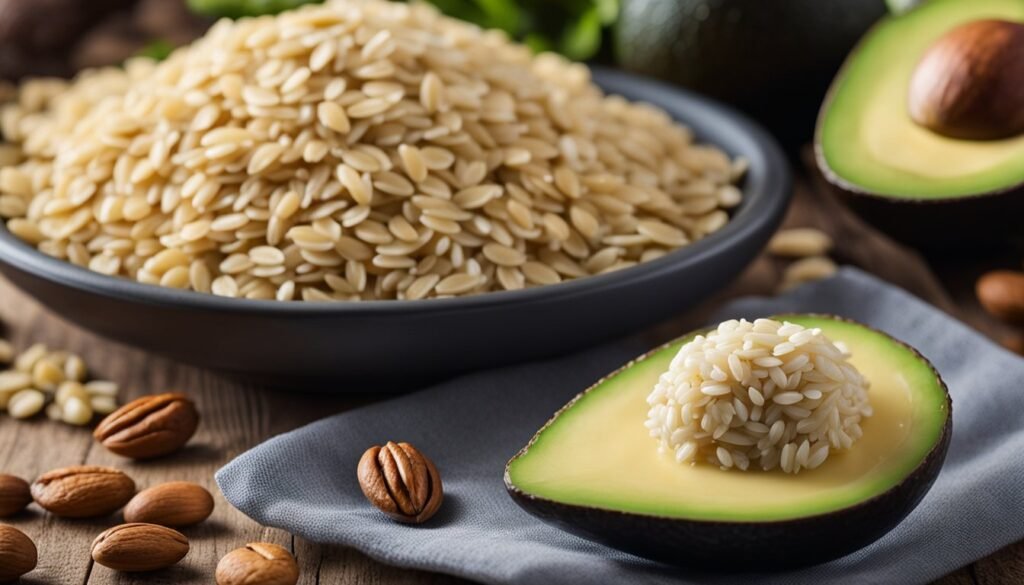
Tip 4: Focus on Nutrient Timing
Nutrient timing can significantly impact muscle growth and recovery. Consuming the proper nutrients at the correct times can enhance the effectiveness of your vegan bodybuilding diet.
Pre-Workout Nutrition:
Consume a balanced meal containing complex carbohydrates and protein 2-3 hours before your workout. This will fuel your muscles and provide sustained energy for optimal performance.
Post-Workout Nutrition:
Within 30 minutes of finishing your workout, consume a meal or shake with a 3:1 ratio of carbohydrates to protein. This promotes muscle healing and replenishes glycogen storage.
Snack Ideas:
- Pre-Workout: Oatmeal with berries and almond butter mixes carbohydrates and protein.
- Post-Workout: A smoothie with banana, spinach, protein powder, and flaxseeds offers a quick and effective nutrient boost.
Consistency in Timing:
Ensure that you consistently follow these timing strategies to maximize muscle gain. Plan your meals and snacks around your workout schedule to avoid any lapses in nutrient intake.
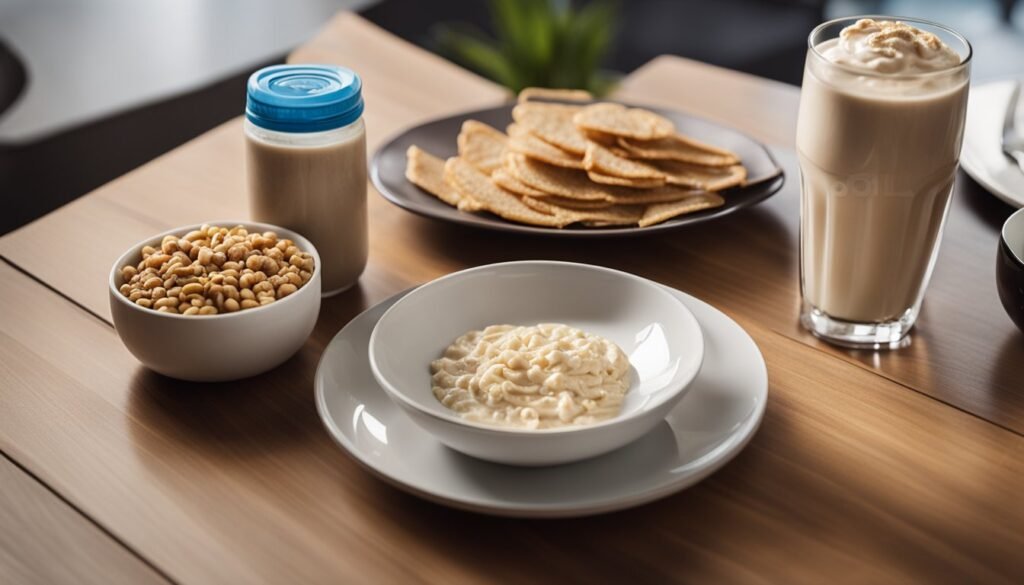
Tip 5: Supplement Wisely
While a well-planned vegan bodybuilding diet can meet most nutritional needs, supplements can help fill potential gaps, ensuring optimal performance and recovery.
Essential Supplements:
- Protein Powder: Plant-based protein powders, such as pea, hemp, or brown rice protein, are convenient for meeting protein needs.
- B12: A crucial vitamin often lacking in vegan diets, essential for energy and red blood cell production.
- Omega-3 Fatty Acids: Algal oil supplements provide a vegan source of omega-3s, essential for heart and brain health.
- Vitamin D: Supports bone health and immune function; consider a supplement with limited sun exposure.
- Creatine: Enhances strength and muscle mass; vegan-friendly creatine monohydrate is available.
Incorporating Supplements:
Integrate supplements into your daily routine. For instance, start your day with a smoothie with protein powder and a B12 supplement. Throughout the day, take omega-3 and vitamin D supplements as recommended. Creatine can be taken post-workout to support muscle recovery and growth.
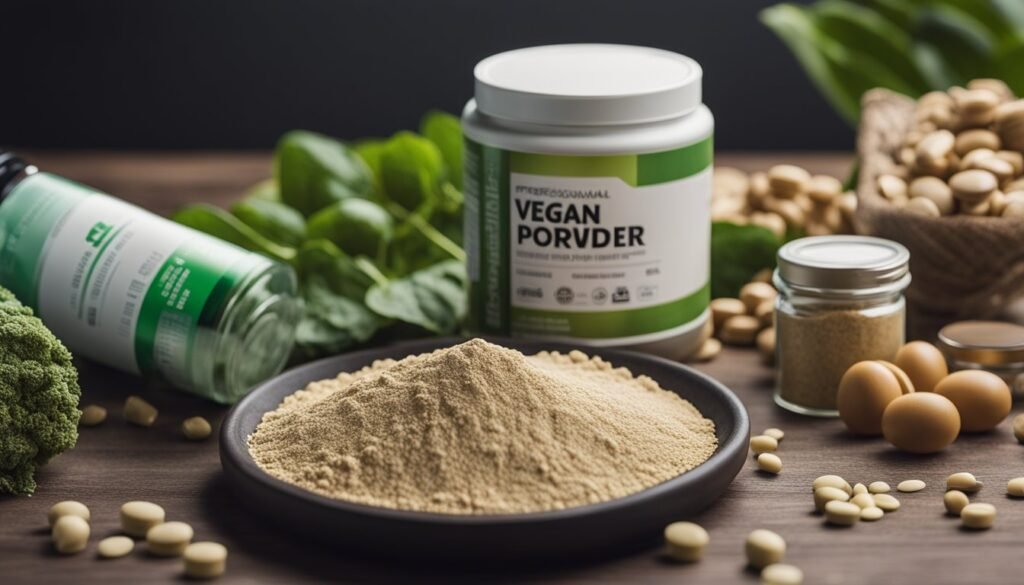
Tip 6: Stay Hydrated
Hydration is often overlooked in a vegan bodybuilding diet, yet it plays a critical role in muscle function and recovery. Water supports nutrient transport, joint lubrication, and temperature regulation during workouts.
Hydration Tips:
- Drink Throughout the Day: Aim for at least 3 liters of water daily, more if you’re highly active.
- Monitor Urine Color: Light yellow urine typically indicates adequate hydration.
- Include Electrolytes: Consume foods rich in potassium, magnesium, and sodium, or use electrolyte supplements, especially during intense workouts.
Hydration Strategy:
Develop a hydration strategy that includes drinking water consistently throughout the day. Start your morning with a large glass of water and continue sipping water during meals and between workouts. Consider incorporating coconut water or homemade electrolyte drinks to maintain balance.
Hydrating Foods:
Include hydrating foods in your vegan bodybuilding diet. Cucumbers, watermelon, oranges, and bell peppers have high water content and can contribute to your overall hydration.
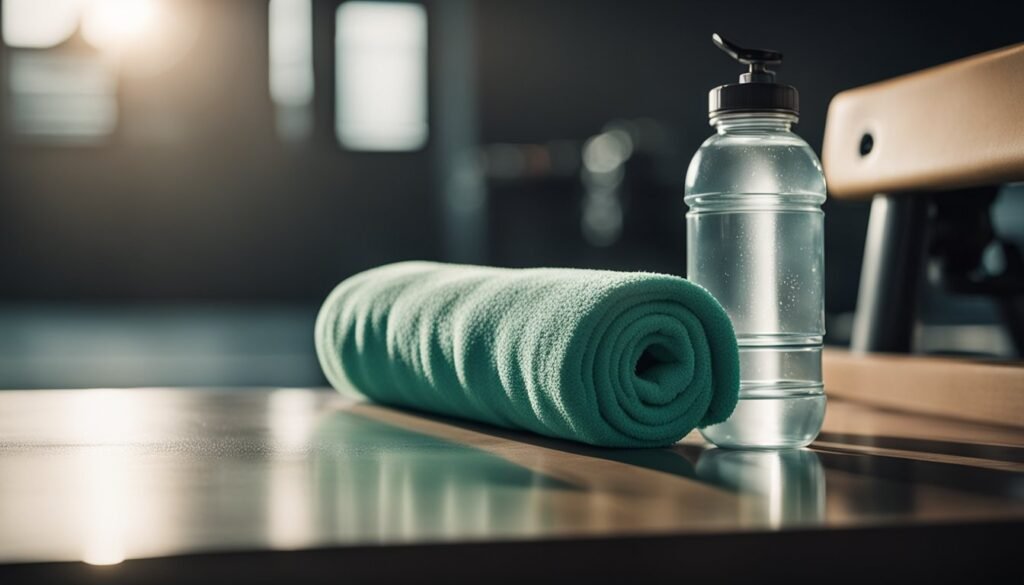
Tip 7: Embrace Variety and Enjoy Your Diet
Maintaining a vegan bodybuilding diet should not feel restrictive. Embrace the variety of plant-based foods to ensure a wide range of nutrients and to keep your meals exciting and enjoyable.
Diverse Food Choices for vegan bodybuilding diet:
- Explore Different Cuisines: Indian, Mediterranean, and Mexican cuisines offer delicious plant-based options.
- Experiment with Recipes: Try new recipes and cooking methods to keep your diet interesting.
- Incorporate Seasonal Produce: Eating seasonally can add variety and freshness to your meals.
Meal Planning for vegan bodybuilding diet:
Plan your meals ahead of time to ensure you’re meeting your nutritional goals. Batch cooking and meal prepping can save time and make sticking to your vegan bodybuilding diet easier.
Making Meals Enjoyable:
Create meals that you genuinely enjoy. Use herbs and spices to add flavor without extra calories. Try new cooking techniques, such as grilling, roasting, or stir-frying, to enhance the taste and texture of your food.
Social Aspects:
Don’t let your vegan bodybuilding diet isolate you socially. Share your meals with friends and family, and invite them to try vegan dishes. This can make your dietary choices more enjoyable and sustainable in the long term.
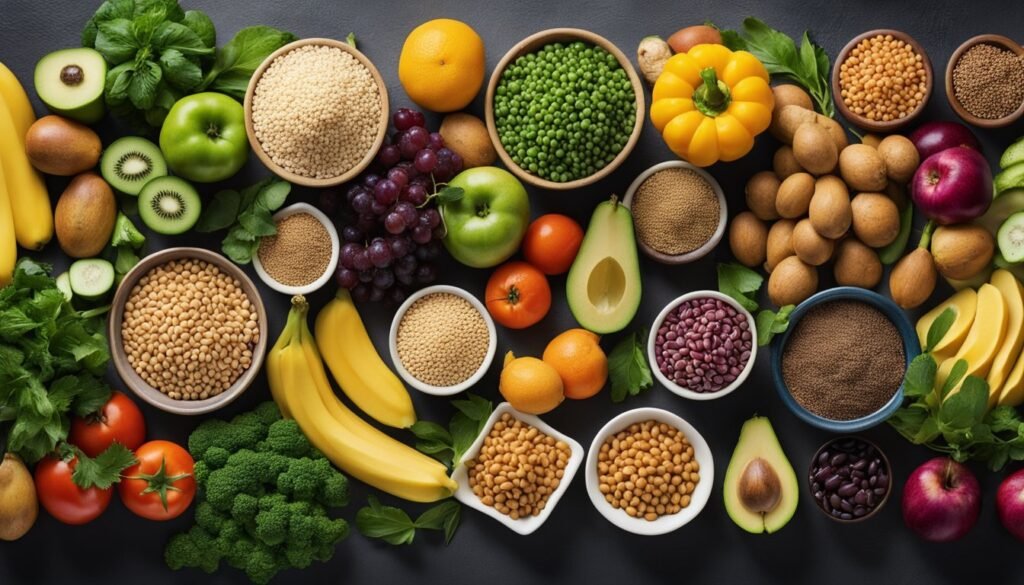
Conclusion of vegan bodybuilding diet
Building muscle on a vegan bodybuilding diet is possible and offers numerous health benefits. By prioritizing protein-rich foods, optimizing caloric intake, balancing macronutrients, focusing on nutrient timing, supplementing wisely, staying hydrated, and embracing variety, you can achieve ultimate muscle gain while adhering to a compassionate and sustainable lifestyle.
Incorporating these seven powerful tips into your vegan bodybuilding diet will help you build the physique you desire while promoting overall health and well-being. Whether you’re a seasoned bodybuilder or just starting your fitness journey, a well-planned vegan diet can support your goals and demonstrate that plant power is mighty.
One of the most significant advantages of a vegan bodybuilding diet is its potential to reduce inflammation. Animal products often contain saturated fats and other compounds that can contribute to inflammation in the body. Plant-based foods, on the other hand, are rich in antioxidants, fiber, and healthy fats, which can help reduce inflammation and improve recovery times. As a vegan bodybuilder, you might experience less muscle soreness and faster recovery after intense workouts, allowing you to train more effectively and consistently.
Moreover, a vegan diet can improve cardiovascular health. Research has shown that plant-based diets can lower blood pressure, reduce cholesterol levels, and decrease the risk of heart disease. Bodybuilding places significant stress on the cardiovascular system, so maintaining heart health is crucial for long-term fitness and performance. By following a vegan diet, you can support your cardiovascular system and ensure it can handle the demands of rigorous training sessions.
Sustainability is another compelling reason to choose a vegan bodybuilding diet. Animal agriculture has a significant environmental impact, contributing to deforestation, water pollution, and greenhouse gas emissions. By opting for plant-based sources of protein and nutrients, you are positively impacting the planet. This sustainable approach benefits the environment and aligns with the ethical considerations of many athletes who are conscious of the broader impact of their dietary choices.
Additionally, a vegan diet encourages greater culinary creativity and diversity. The vast array of plant-based foods allows you to experiment with different recipes, flavors, and cuisines. This variety can prevent dietary monotony and ensure you receive a wide range of nutrients essential for muscle growth and overall health. Exploring diverse food options can also make your meal planning more enjoyable and sustainable in the long run.
Recap of the Seven Powerful Tips:
- Prioritize Protein-Rich Foods: Ensure your diet is rich in plant-based proteins like legumes, soy products, seitan, nuts, seeds, and whole grains.
- Optimize Caloric Intake: Consume more calories than you burn by accurately incorporating calorie-dense foods and calculating your caloric needs.
- Balance Macronutrients: Maintain a balanced intake of carbohydrates, proteins, and fats to fuel your workouts and support overall health.
- Focus on Nutrient Timing: Strategically time your meals and snacks around your workouts for optimal muscle growth and recovery.
- Supplement Wisely: Essential supplements like protein powder, B12, omega-3s, vitamin D, and creatine can fill potential nutritional gaps.
- Stay Hydrated: Ensure adequate hydration to support muscle function and recovery, and incorporate hydrating foods and electrolytes.
- Embrace Variety and Enjoy Your Diet: Keep your meals diverse and enjoyable by exploring different cuisines, trying new recipes, and planning your meals.
Following these tips and maintaining a disciplined approach can achieve significant muscle gains on a vegan bodybuilding diet. Embrace the power of plant-based nutrition and show you can build strength, endurance, and muscle while promoting health and sustainability.
FAQs on Vegan Bodybuilding
- What do vegans eat for bodybuilding?
Vegans eat various plant-based foods for bodybuilding, focusing on high-protein sources to build and repair muscles. Common foods include:
- Legumes (lentils, chickpeas, black beans)
- Tofu and tempeh
- Seitan
- Quinoa and other whole grains
- Nuts and seeds
- Protein-rich vegetables like spinach and broccoli
- Plant-based protein powders
These foods provide the necessary nutrients to support muscle growth and overall health.
- Can you build muscle on a vegan diet?
Indeed, a vegan diet can help you gain muscle mass. Many athletes and bodybuilders successfully gain muscle mass by following a well-planned vegan diet that includes sufficient protein, healthy fats, and complex carbohydrates. Consuming various protein sources ensures you get all the essential amino acids. A balanced vegan bodybuilding diet plan can effectively support muscle growth and recovery.
- Does Arnold Schwarzenegger eat vegan?
Arnold Schwarzenegger is not strictly vegan but has significantly reduced his meat consumption and promotes a primarily plant-based diet. He has spoken publicly about the benefits of reducing animal products for health and environmental reasons and often includes plant-based meals in his diet.
- Should bodybuilders be vegan?
Bodybuilders can be vegan for health, ethical, or environmental reasons. A vegan diet can provide all the necessary nutrients for muscle growth and recovery if adequately planned. Many bodybuilders thrive on a vegan diet, enjoying reduced inflammation and improved digestion. However, careful planning is required to ensure adequate protein intake and overall nutrition.
- What do vegan bodybuilders eat for protein?
Vegan bodybuilders consume various protein-rich foods to meet their dietary needs. Some popular options include:
- legumes such as black beans, chickpeas, and lentils
- Tofu, tempeh, and seitan
- Quinoa and other high-protein grains
- Nuts, seeds, and nut butter
- Plant-based protein powders (pea, hemp, rice protein)
Many vegan bodybuilders refer to resources like vegan bodybuilding meal plan PDFs or forums such as vegan bodybuilding diet Reddit for detailed meal planning. Female bodybuilders can also find specific female vegan bodybuilding meal plan PDFs tailored to their nutritional needs.
